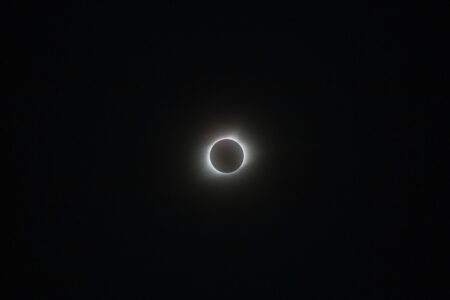Your cart is currently empty!

Exploring the Sounds of Solar Eclipses: A Citizen Science Initiative
When the sun hides behind the moon during a total solar eclipse, the world undergoes a surreal transformation. Darkness descends, temperatures drop, and animals behave strangely. For centuries, observers have documented these peculiarities, but the full extent of an eclipse’s impact on nature remains shrouded in mystery. Now, a groundbreaking initiative seeks to unravel these enigmas by harnessing the power of citizen science.
On April 8, 2024, the Eclipse Soundscapes Project, supported by NASA, will embark on a mission to capture the sights and sounds of a total solar eclipse. This ambitious endeavor aims to shed light on how these celestial events influence various ecosystems. While eclipses are commonly perceived as visual phenomena, the project emphasizes a multi-sensory approach, delving into the realms of sound and sensation to broaden our understanding.
During a total solar eclipse, the moon obscures the sun, casting regions in its shadow into a state akin to twilight. This abrupt change in lighting conditions can trigger anomalous behaviors in wildlife. Birds cease their songs, crickets chirp, and bees retreat to their hives, deceived by the false onset of evening. With over 30 million people in North America poised to witness the upcoming eclipse, the stage is set for an unprecedented citizen science initiative.
Volunteers are invited to join the Eclipse Soundscapes Project, contributing their observations and recordings to unravel the mysteries of eclipse-induced phenomena. Participants will document animal behaviors, record audio samples, and assist in data analysis across the path of totality. By harnessing the collective efforts of citizens, the project aims to build upon the legacy of earlier studies, such as the pioneering work of scientist William M. Wheeler in 1932.
Central to the project’s success is its inclusivity and accessibility. People of all backgrounds and abilities are encouraged to participate, with roles tailored to accommodate diverse needs. Whether on the path of totality or beyond, individuals can contribute as data collectors, observers, apprentices, or data analysts. Each role is vital in piecing together the puzzle of eclipse impacts on Earth’s ecosystems.
The Eclipse Soundscapes Project leverages modern technology to amplify the reach of its research. Utilizing devices like the AudioMoth, a low-cost audio recorder, and online platforms, participants can engage with the project from anywhere with an internet connection. By democratizing scientific inquiry, the initiative empowers individuals to become active agents in the pursuit of knowledge.
Ultimately, the success of the project hinges on the collective efforts of its participants. By pooling resources and expertise, the Eclipse Soundscapes Project endeavors to unlock the secrets of solar eclipses and their profound effects on the natural world. To learn more about how you can get involved and contribute to this groundbreaking research, visit eclipsesoundscapes.org and become a part of scientific history in the making.

Leave a Reply